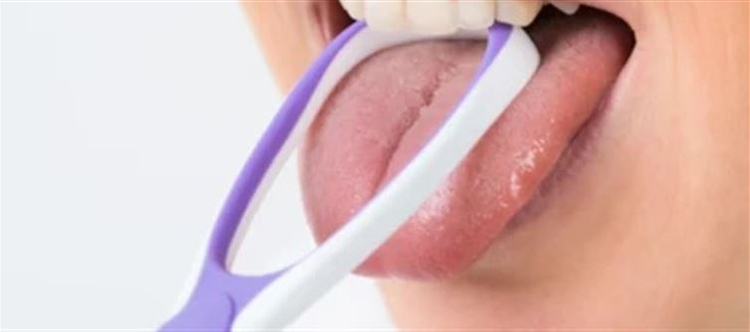
"You will notice a thick white coating on your tongue whenever you wake up, get out of bed, go to the bathroom, and look at it in the mirror," he added. All that coating is the buildup of the toxin that your body has created. It everything returns to your system if you won't take care of that. Brush your teeth as soon as you wake up, and then scrape your tongue with a tongue scraper. You will ultimately take charge of your health by getting rid of that accumulation to the tune of at least 40%."
Tongue cleaning and its implications
In response to Dr. Ajit's statement, Dr. ashish Kakkar, senior consultant in dental surgery at Indraprastha Apollo Hospitals, emphasized the importance of tongue washing for oral health in an interview with india Herald. "Tongue cleaning is a practice that is frequently advised as part of oral hygiene routines," he stated. Clinically speaking, its advantages go beyond dental health and may have an impact on systemic health via processes including gut function and microbial balance.
"Lingon cleaning is a good practice from a clinical standpoint for maintaining oral hygiene, lowering microbial loads, and possibly supporting systemic health through mechanisms like nitrate metabolism and digestive improvement," he continued. However, when paired with thorough dental hygiene practices like brushing and flossing, its efficacy is maximized. Its long-term effects on systemic disorders such as chronic halitosis and cardiovascular health require more investigation.
What is the role of tongue cleaning in oral health?
As stated by Dr. ashish Kakkar:
• Oral malodor reduction: Research indicates that mechanical tongue cleaning with scrapers or brushes will lessen volatile sulfur compounds (VSCs), one of the main causes of foul breath. However, the frequency and cleaning technique have an impact on the effectiveness. According to certain studies, without brushing your teeth at the same time, cleansing your tongue might not be enough to considerably reduce morning oral malodor.
• Better microbial balance: By breaking up bacterial biofilms on the tongue's surface, routine tongue cleaning lowers dangerous bacterial loads. This promotes general oral health by preventing gum disease and plaque buildup.
Does tongue cleaning impact overall health?
As said by Dr. Kakkar:
⦿ Cardiovascular health: Nitric oxide (NO), a chemical vital to cardiovascular health, is produced by nitrate metabolism, which is influenced by the tongue microbiota. Regular tongue washing has been demonstrated to enhance blood pressure regulation and cardiovascular health by favoring nitrate-reducing microorganisms.
⦿ Digestive power: According to Ayurvedic medicine, cleansing the tongue helps improve digestion by eliminating toxins (Ama). Clinical research has substantiated this assertion by demonstrating that regular tongue cleansing improves fecal quality and digestive symptoms like constipation.
Does tongue cleaning improve quality of life?
"Tongue cleaning has been associated with improved oral health-related quality of life (OHRQoL)," stated Dr. Kakkar. By exposing taste buds, it enhances taste perception and lessens the social discomfort that comes with foul breath. All of these elements work together to improve general well-being and self-confidence.
Limitations and other considerations
Although tongue cleaning has the potential to enhance oral hygiene and overall health, Dr. Kakkar mentioned that certain research points out drawbacks:
⦿ Inadequate proof of chronic halitosis: There is still conflicting research regarding the long-term impacts of tongue cleansing on persistent bad breath.
⦿ Dependency on technique: The frequency and manner (brush vs. scraper) employed have a major impact on how well tongue cleaning works.
Disclaimer: Readers should be aware that this article is merely meant to be informative and should not be used in place of expert medical advice. If you have any queries concerning a medical problem, you should always consult your doctor.




 click and follow Indiaherald WhatsApp channel
click and follow Indiaherald WhatsApp channel